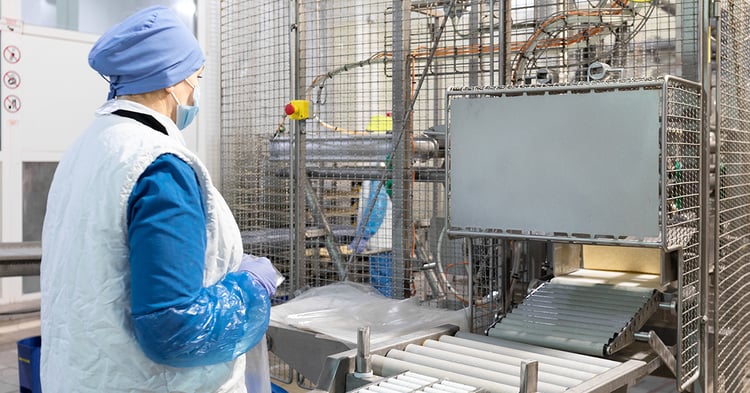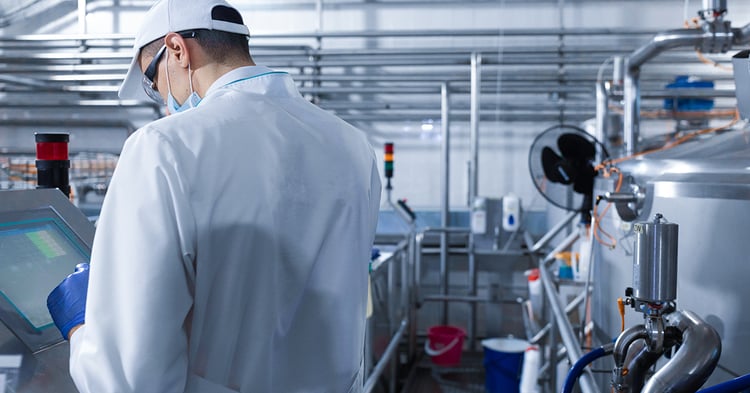![]()
Manufacturing Execution Systems (MES) are essential in enhancing quality control in manufacturing. MES improves quality control processes by automating data collection and providing real-time insights, which reduces errors and enables immediate corrective actions. Real-time monitoring features allow manufacturers to track and analyze quality metrics consistently. MES also plays a critical role in quality assurance, ensuring quality standards through comprehensive documentation, continuous improvement efforts, and integration with other systems. By leveraging MES, manufacturers can proactively address quality issues, optimize efficiency, and maintain high standards across production.
Table of Content
- How MES Contributes to Enhanced Quality Control in Manufacturing
- How MES improves quality control processes
- Real-time monitoring and analysis of production quality metrics
- Understanding the Role of MES in Quality Assurance
- Cross-Departmental Collaboration for Holistic Data Capture
- Glossary
- Boost Efficiency by 15%! – Try LiveTracking’s 30-day demo and see the impact on your manufacturing quality control.
Discover how MES can revolutionize your quality control processes today—contact us for a demo!
How MES Contributes to Enhanced Quality Control in Manufacturing
Manufacturing Execution Systems (MES) have emerged as essential tools for enhancing quality control in the manufacturing sector. With the increasing complexity of production processes and the need for high-quality outputs, MES offers robust solutions that not only streamline operations but also ensure that quality is consistently maintained. This article delves into the various aspects of how MES contributes to enhanced quality control in manufacturing, focusing on its processes, features, challenges, and the return on investment (ROI) associated with quality control initiatives.
How MES improves quality control processes
Quality control processes are critical for any manufacturing operation, as they directly impact customer satisfaction and operational efficiency. MES significantly enhances these processes by facilitating better data collection and analysis.
One of the primary ways MES improves quality control is through automation. By automating data collection from production lines, manufacturers can minimize human error and ensure that quality metrics are captured accurately and consistently. The automation enables real-time feedback, which is essential for quick decision-making and immediate corrective actions.
Moreover, MES provides a centralized platform for managing quality-related information. This enables stakeholders to access relevant data and insights, ensuring that quality checks are performed at every stage of production. With this real-time access to quality metrics, manufacturers can quickly identify trends and deviations, allowing for timely interventions.
In addition to these benefits, MES systems often incorporate advanced analytics and machine learning capabilities. These technologies can analyze historical quality data to predict potential issues before they arise, allowing manufacturers to proactively address problems rather than reactively fixing them. For instance, predictive analytics can highlight patterns that indicate a decline in product quality, enabling teams to investigate root causes and implement preventive measures. This not only enhances product quality but also reduces waste and rework, ultimately leading to cost savings.
Furthermore, the integration of MES with other enterprise systems, such as ERP and supply chain management software, creates a holistic view of operations. This interconnectedness allows for a seamless flow of information across departments, ensuring that quality control is not siloed but rather part of a comprehensive operational strategy. For example, if a quality issue is detected, the MES can automatically notify the procurement team to halt the delivery of raw materials from a specific supplier, thereby preventing defective products from being manufactured. This level of coordination is vital for maintaining high standards of quality and operational excellence.
Real-time monitoring and analysis of production quality metrics
Real-time monitoring is one of the standout features of MES and plays a crucial role in quality control. By continuously tracking production quality metrics such as defect rates, cycle times, and first-pass yields, MES systems allow manufacturers to maintain oversight of operations at all times.
This level of monitoring enables organizations to establish quality checkpoints throughout the manufacturing process. For example, MES can alert operators if a specific quality threshold has been breached, prompting immediate investigation and remediation. The swift response to quality issues can significantly reduce the amount of rework and scrap generated, ultimately leading to cost savings.
Additionally, the analytical capabilities of MES facilitate deeper insights into production quality. By analyzing historical quality data, organizations can detect patterns that may not be immediately apparent. This predictive analytics approach allows manufacturers to anticipate quality-related issues before they escalate, thereby enhancing proactive decision-making.
Moreover, the integration of real-time monitoring with advanced technologies such as IoT devices and machine learning algorithms further amplifies the effectiveness of MES. IoT sensors can provide granular data from machinery and production lines, offering insights into equipment performance and operational efficiency. When combined with machine learning, these systems can learn from past data to improve future quality predictions, resulting in a more resilient manufacturing process.
Furthermore, the collaborative aspect of MES cannot be overlooked. By providing a centralized platform for data sharing, teams across different departments—such as quality assurance, production, and supply chain—can work together more effectively. This collaboration fosters a culture of continuous improvement, where feedback loops are established, and lessons learned from quality monitoring are integrated into future production strategies. As a result, organizations not only enhance their current quality metrics but also build a robust framework for sustainable quality management in the long run.
Understanding the Role of MES in Quality Assurance
The role of MES in quality assurance cannot be overstated. It acts as a bridge between the manufacturing floor and quality management systems, ensuring that quality standards are maintained throughout the entire production lifecycle.
One critical aspect of quality assurance that MES supports is documentation. MES systems can automatically generate and store quality documentation, such as inspection reports and compliance records. This ensures that all quality checks are documented in real time and can be easily retrieved for audits and regulatory compliance. Having comprehensive records also facilitates better communication between departments and increases accountability. Furthermore, the automation of documentation reduces the risk of human error, which can lead to discrepancies in quality reporting. This level of accuracy is vital in industries where precision is paramount, such as pharmaceuticals and aerospace, where even minor deviations can have significant consequences.
Moreover, MES contributes to continuous improvement efforts in quality assurance. By analyzing data and feedback collected throughout the production process, organizations are equipped to implement changes that enhance quality. MES can provide insights on worker performance, machine efficiency, and process adherence, leading to more informed improvements. This data-driven approach allows companies to identify trends and patterns that may not be immediately apparent, enabling proactive measures to be taken before issues escalate. For instance, if a particular machine consistently produces defects, the MES can flag this anomaly, prompting maintenance or recalibration before it affects larger batches of production.
Additionally, MES systems often integrate seamlessly with other technologies, such as IoT devices and advanced analytics platforms, further enhancing their capabilities in quality assurance. By leveraging real-time data from connected machines, organizations can monitor production conditions and quality metrics continuously. This integration not only aids in immediate corrective actions but also fosters a culture of quality where employees are empowered to take ownership of their work processes. Training programs can be tailored based on insights gained from MES data, ensuring that staff are well-equipped to uphold quality standards and adapt to evolving industry demands.
Cross-Departmental Collaboration for Holistic Data Capture
Collaboration between departments aligns data capture processes with business goals, improving data quality and fostering innovative problem-solving.
Boost your production quality with real-time monitoring and predictive analytics. Learn more about our MES services!
Glossary
- MES (Manufacturing Execution System) - Software that monitors and controls manufacturing operations to ensure efficiency and quality.
- Automation - The use of technology to perform tasks without human intervention, reducing errors and enhancing speed.
- Predictive Analytics - Analyzing historical data to predict future trends and prevent issues.
- IoT (Internet of Things) - Devices connected to the internet that collect and share data in real time.
- Quality Assurance - Ensuring that products meet certain standards consistently throughout production.
- Real-Time Monitoring - Continuously tracking processes or metrics as they happen, allowing for instant feedback and corrections.


